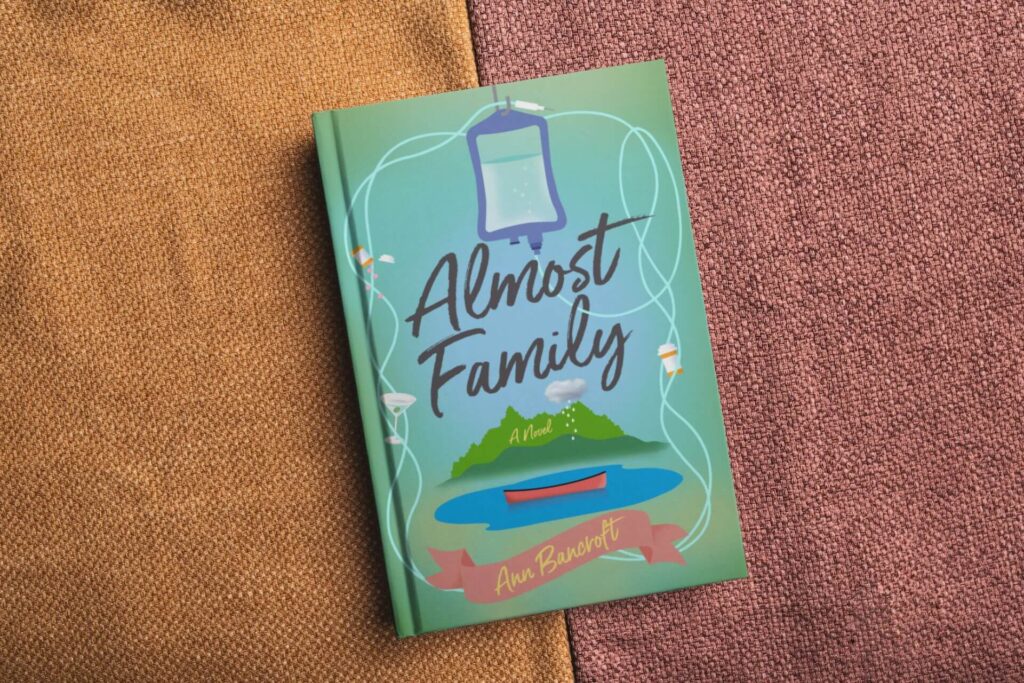My father used to say that by counting up our years, we’re actually looking at age backwards. “We really don’t know how old we are now unless we know when we are going to die,” he said. If you die at 50, from his perspective you were old at 45, even if you didn’t know it. Hmmmm.
My father died of cancer at 61, not realizing that when he first put forth his premise he wasn’t actually middle-aged, but “old.”
I like his viewpoint because it keeps top of mind the fact our culture so often avoids: we will all die, and our lives may be shorter than we imagine they will be. This perspective, honed not only by remembering my Dad but by my own two bouts of cancer, keeps me from wallowing too long in disappontments, from procrastinating on projects I claim I want to do, from fearing or letting slip opportunities that challenge my occasional introvert’s desire to just stay home and read a book..
I decided to attempt fiction witing at 57, after my first year-long adventure with cancer surgeries, chemo, and radiation treatments gave me incentive and permission to retire early. Having been for most of my career a reporter, freelance magazine writer, op-ed contributor and speechwriter, I thought, “how hard could fiction be?”
Well, hard. Incredibly hard. After a lifetime of strictly adhering to old-school journalistic practices (just the facts, never put yourself in the story, etc.) the practice of imagining and putting onto the page entirely fictional characters and events presented an often frustrating, but sometimes exhilarating challenge. I had to study craft, making the same mistakes over and over until I could catch myself before committing them again. Old habits (summarizing, say, as I did for wire service reporting, or telling instead of showing in scene) had to be recognized and rejected, and new ones established, such as taking the time to revise, revise, and revise some more.
I went to conferences and retreats, to online and university extension courses. And I became gripped by a story that took hold in my head over several years: What if my Dad was right? What if, when I’d been diagnosed, the prognosis had been more cut and-dried — a metastatic disease that would likely kill me within months or brief years?
What if I had been alone in life, and this happened at the same time as my worst heartbreak? How would I cope and what would I do with my time? How would I react to the world, and how would it react to me? It’s one thing to feel yourself aging in the eyes of others, and another to have others look at you and go straight to thoughts of death.
I wanted to write a story about the fullness of life toward its end. I wanted to make it easier for people to see that cancer patients, even those pronounced terminally ill, are fully alive as long as they live. We can grow as long as we live. Also, I wanted to show that even our tough times can be funny — we can hold poignancy and humor at the same time, without getting all melodramatic about it.
The story of how Almost Family grew from a novel originally called The Oakland Mets, and the twelve-year saga of getting from idea to publication, will come later. I still have enough news reporter in me to remember to keep this short.


I can’t wait to read this!
I just want to show my support to the woman who gave me her Mother’s Jaguar. I can’t wait to read your book!
I enjoyed reading what was behind your choice for this topic, thank you for sharing.
As an early reader, I will be posting my review next week.
Spoiler Alert: I LOVED the book!!
A beautifully written refraction of your dad’s philosophical musings, and how that informed your novel. I can’t wait to finish reading Almost Family!
Your precis above reflects what a good journalist you were and are. The book shows what a good writer you are. Bravo! I feel privileged to have come along for the ride of your life. Most of all, you are a friend for the whole trip. Arms around you! Hil
I loved this book. Yes, the main characters are dealing with cancer but it’s bigger than that. It’s dealing with love, friendship, supporting each other and coming to terms with both life and death. It’s beautifully written, full of humor and great characters.
What a terrific story of courage, grace, dignity, self-awareness, and the ultimate self-respect. And those qualities not only infuse the almost-family of Ann’s characters, but clearly are qualities that Ann herself has in abundance. In our death-fearing culture, it’s so important to be reminded that every phase of life, from first to last, matters.
I felt truly honored to be an early reader of this book. Ann, I’m just completely impressed with the way you could capture the essence of the emotions of the people in the group. From the strained relationship between Liz and her daughter, to the vulnerabilities of each character… These characters lived on in my heart for months afterwards! This book was a treasured “dessert“ for me each day last summer!
My heart is filled with gratitude for your presence in my life. 🙏🏼♥️🙏🏼